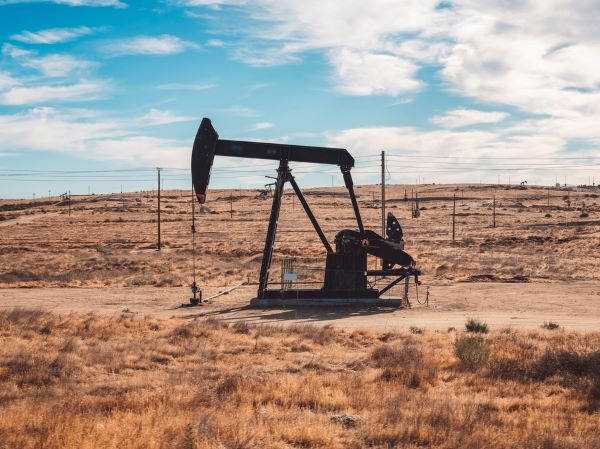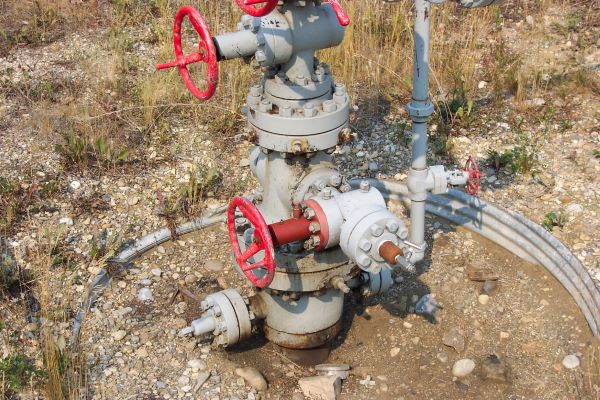Who Will Pay for Alberta's Orphan Wells?
Alberta's orphan wells require proper decommissioning to prevent harm to the environment and surrounding communities. Who will pay for this?
Canadians are facing many struggles right now: an unprecedented economic slowdown due to COVID-19, a global oil price shock, and the still-urgent challenge of transitioning to a low-carbon future. We know the federal government is stepping in to support the oil and gas sector, and more stimulus decisions will play out over the next few months. The way this help is provided could make or break the ability of communities to prosper in the long run, something that is especially the case for the tricky issue of orphaned oil and gas wells in Alberta.
Of the province’s 300,000 or more un-reclaimed oil and gas wells, about half are inactive, and around 3,500 are so-called “orphans.” These wells require proper decommissioning to prevent harm to the surrounding environment and those who call it home. But if the company that owns a well declares bankruptcy and walks away, who pays for this decommissioning?

A Growing List of Unpaid Bills is Hurting Albertans
The growing list of unpaid bills by oil and gas companies is already harming Albertan communities. Companies haven’t paid $20 million in compensation to landowners since 2010, and 2019 alone saw $173 million in unpaid municipal taxes. But costs for orphan well cleanup are by far the highest.
The Alberta Energy Regulator has privately estimated the cost of cleaning oil and gas wells at a staggering $100 billion, but the actual amount to clean up Alberta’s oil patch could be much higher. And while Alberta’s Orphan Well Association is supposed to take over managing these wells, they’re having serious trouble keeping up.
Now, with the effects of COVID-19 and oil price drops creating new challenges, the impacts on communities could worsen significantly.
With the effects of COVID-19 and oil price drops, the impacts on communities could worsen significantly. The math is frightening.
The math is frightening, yet it seems increasingly likely that these rising costs will be passed on to taxpayers rather than the companies who are responsible. And making taxpayers pay for cleanup adds insult to injury: inactive and depleted wells already pose a massive and unfair burden to communities’ health and well-being, including the farmers and ranchers who are now stuck with these wells on their land. Leaks from inactive and depleted wells can contaminate the soil and water used to grow food, accumulate in nearby areas, and pose dangerous health risks.
At IISD, we have documented the sizable subsidies provided to the oil and gas industry by both the Albertan and federal governments. Directing even more public money toward cleanup of inactive and depleted wells could constitute a significant new fossil fuel subsidy.
More importantly, it wouldn’t solve the problem that got us here.
Caught Between a Rock and a Hard Place
Right now, communities in Alberta are caught between a rock and a hard place. Targeted support from the federal government could help address environmental issues and inject economic and job activity in the province. But support needs to come with a firm commitment to assist communities with energy transition and economic development issues first as our economic landscape shifts.
Directing more public money toward cleanup of inactive and depleted wells could constitute a significant new fossil fuel subsidy. And it wouldn't solve the problem that got us here.
Government has the power to stimulate the economy in the short term and put in place policies to ensure Canadian communities thrive in the long term. When it comes to inactive and depleted wells, here’s how Canada could do this:
Ensure industry remains responsible for cleanup. Short-term targeted support could help kickstart well reclamation, but it is critical that Canadian governments do not become the long-term funders of the cleanup. Ultimately, the oil and gas industry should be funding cleanup, so mechanisms need to be set up now to ensure this is possible well into the future. It’s also important that the laws that govern the Orphan Well Association be followed, which will save taxpayers’ money, reduce the need for loans to the association, and accelerate cleanup.

Support measures for well cleanup should be community-focused and not take the form of entrenched fossil fuel production subsidies. There are already proposals to do this, which ultimately would not solve the problem over the long term. On the contrary, using flow-through shares or similar tax instruments for well reclamation means higher subsidies going to companies with no guarantee that communities will benefit.
It is critical that the oil and gas industry—not Canadian governments—become long-term funders of the cleanup.
The Redwater decision makes it clear that governments have the power to uphold the “polluter-pays principle,” even if a company goes bankrupt. It is possible to do this by looking back at the former owners of the well (or the directors or shareholders of the bankrupted company) to ensure that liabilities are addressed. But it’s important to note that many inactive wells are held by large and financially successful companies. In these cases, the companies should foot the bill.
Create a stronger inactive well regime. Governments must find a way to make sure we never end up in this situation again. If federal and provincial support is provided, it must come with a more effective inactive well regime, following best practices from other jurisdictions such as mandatory timelines for well remediation, more stringent up-front security bond requirements before drilling, tightened liability rules, and the monitoring of bankruptcy courts to prevent liabilities being left to government.
Alberta is currently updating its system for environmental oil & gas liabilities, but it looks unlikely the update will result in the kind of rules that are needed. The framework for dealing with inactive wells must be fixed to prevent the current situation from worsening exponentially. And when developing and improving policies, governments should be consulting with affected communities.
Guarantee tangible benefits for Albertan workers and communities. Any federal and provincial assistance for inactive and depleted wells should have a clear link to reclamation and create opportunities for Albertans. There is significant potential for oil well reclamation to open up new jobs. Old well sites could be used for renewable power installations, including solar and geothermal, which could help farmers earn additional income.
There is significant potential for oil well reclamation to open up new jobs.
Canada should commit to policies and programs that advance just transition principles. With the ongoing shuttering of several oil and gas companies, clear strategies are needed to help those who have historically relied on the industry. Reclamation jobs are only a small part of the picture, and not everyone will be able to benefit from cleanup work. Canada should be proactive in prioritizing and supporting communities impacted by transition across the country, for example, by introducing a progressive and expansive Just Transition Act and by listening to what communities need at a local level.
It’s clear that the way inactive and depleted wells are being managed is not working for communities or the environment. The good news is that addressing well cleanup now can help put people to work while at the same time getting local economies back on track. Let’s do it in a way that ensures industry stays accountable so that communities and taxpayers aren’t on the hook in the long run.
Funded by
You might also be interested in
Green Strings: Principles and conditions for a green recovery from COVID-19 in Canada
Endorsed by Canada's leading environmental groups, this paper sets out seven "green strings" recommendations to apply to government measures to ensure a green recovery from COVID-19.
The Time is Right for New, Low-Carbon Investments
Instead of a bailout for Canada's oil and gas sector, government and industry should pursue investments that will help develop new energy solutions and markets: IISD's Richard Florizone in The Hill Times.
Doubling down on Alberta’s oil and gas sector is a risk Canadians can’t afford to take
In times of unprecedented crisis, government leadership means being bold. But as Canada and its provinces prepare to roll out record-breaking emergency responses to help the newly jobless and throw lifelines to drowning sectors, it’s becoming clear that not all support is created equal.
We Need a Managed Wind-Down of Fossil Fuel Production
To meet climate goals and avoid further market chaos, governments need to plan the decline of coal, oil and gas production, with support for workers.
